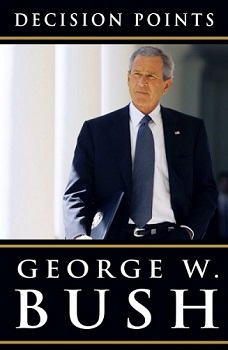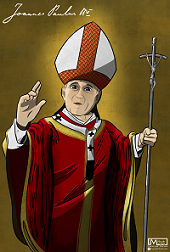 I re-read some of this book (published in 2010) this weekend, and am reminded of the perspective of President Bush during the time following 9/11. He describes being given the badge of someone who died when the towers fell, and then:
I re-read some of this book (published in 2010) this weekend, and am reminded of the perspective of President Bush during the time following 9/11. He describes being given the badge of someone who died when the towers fell, and then:
I served 2685 days as President after Arlene gave me that badge. I kept it with me every one of them. As the years passed, most Americans returned to life as usual. That was natural and desirable. It meant the country was healing and felt safer.
As I record these thoughts, that day of fire is a distant memory for some of our citizens. The youngest Americans have no firsthand knowledge of that day. Eventually, Sept. 11 will come to feel more like Pearl Harbor Day; an honored date on the calendar and an important moment in history. But not a scar on the heart. Not a reason to fight on.
For me, the week of Sept. 11 will always be something more. I still see the Pentagon smoldering, the towers in flames. And that pile of twisted steel.
I still hear the voices of the loved ones searching for survivors and the workers yelling “Do not let me down!” and “Whatever it takes!” I still feel the sadness of the children, the agony of the burn victims, and the torment of the broken families. I still marvel at the bravery of the firefighters and the compassion of strangers. And the matchless courage of the passengers who forced down that plane.
September 11 redefined sacrifice. It redefined duty. And it redefined my job. The story of that week is the key to understanding my presidency. There were so many decisions that followed, many of them controversial and complex, yet after 9/11 I felt my responsibility was clear. For as long as I held office, I could never forget what happened to America that day. I would pour my heart and soul into protecting the country, whatever it took.
That is from the end of Chapter 5.
Bush talks in detail about many of those decisions that were made.
Also very interesting to me was this in Chapter 6: “Between 9/11 and mid-2003, the CIA reported to me on average of 400 specific threats each month.”
My original review of this book from November 2010:
I haven’t rated much non-fiction on Goodreads, but since I intend to read a whole lot more of it, I should develop some kind of criteria. Still – to slap a star rating on what amounts to an important historical document seems wrong. I see that many people are attaching ratings that correspond with how much they like or dislike the man, and I think that’s wrong too.
What President Bush has done here is present his life (mostly his life as the President of the United States) as a series of crises that required a decision. Each chapter focuses on a specific moment or event, and the chapters could be read individually without the benefit of the rest of the book. So, if you are interested in 9/11 and the days after, pick it up and read Chapter 5 (Day of Fire). Other chapters include “Katrina”, “Surge”, and “War Footing”.
The book is written in a conversational manner that remains compelling if you are interested in what he’s talking about. I appreciated the personal details about those around him, like a note passed to the President from Secretary of State Colin Powell about how not to choke up during an emotional speech. I also enjoyed the insider view of how things work when you are the President.
It’s a book that delivers exactly what it promises, and it’s well written.





